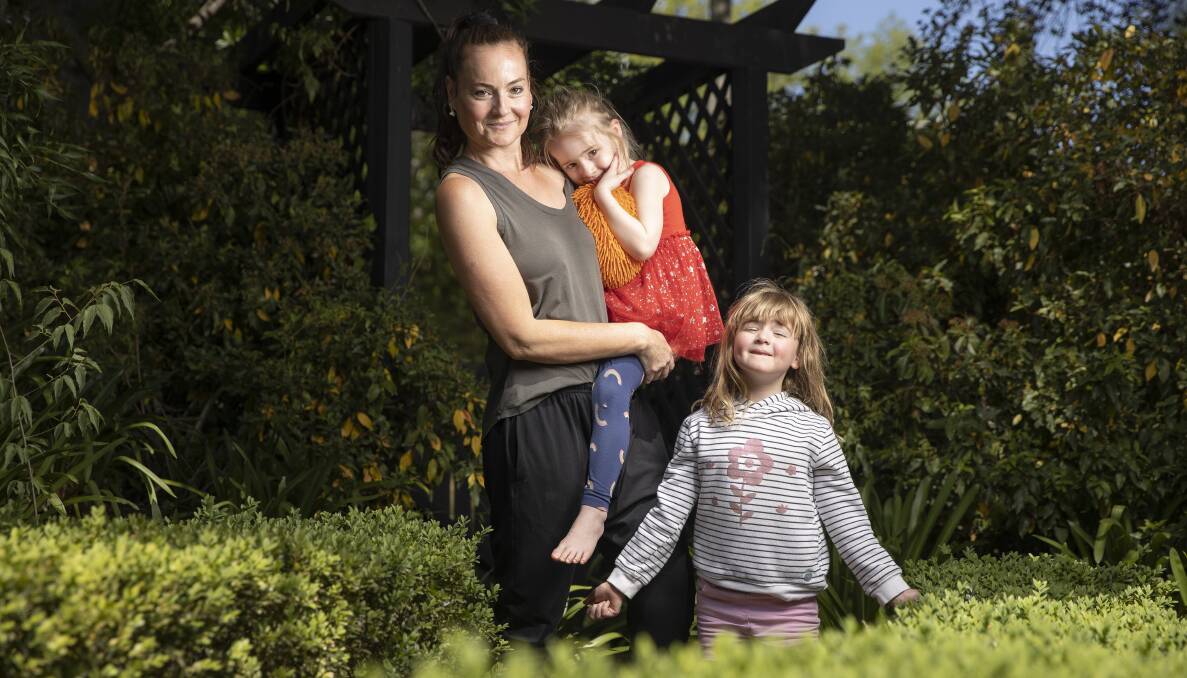The amount and location of childcare centres in the ACT requires better planning to combat an oversupply of centres, an alliance of childcare providers says.
Subscribe now for unlimited access.
or signup to continue reading

The Children First Alliance, a body of 43 Canberra early learning centres, recently conducted a survey of almost 800 Canberra parents with children in care.
A massive 83 per cent of respondents said their children had demonstrated improved social skills due to childcare, which Children First Alliance co-chair Amanda Tobler said was suggestive of a high quality of care across the ACT.
However, Ms Tobler said the amount of parents saying they found it easy to secure a place in childcare suggested there was an oversupply in the territory.
Figures from the ACT government show the number of approved early childhood education and care services grew from 323 in 2015 to 349 in June this year. When factoring in family day care services the figures grew from 341 to 358 in the same period.
The estimated resident population of children aged zero to five rose from 31,583 in 2013 to 34,252 in 2017.
Forty-five per cent of parents surveyed either found it easy or very easy to secure a place in care, with a further 29 per cent recording a neutral response.
While this was a positive for families seeking good quality childcare, Ms Tobler said the flip side was the workforce was being diluted across these services.
"There's not enough staff to carry the number of centres," Ms Tobler said.
One Canberra mum, Sarah Chatain, had a similar experience to most parents surveyed when she tried to get her two daughters into care.
Cecilia, 5, has been in childcare for about four years while Harriette, 3, has been attending daycare for two years.
What's happening is places are not at capacity and then there's new places opening metres away. We wouldn't place 10 primary schools in one suburb.
- Children First Alliance co-chair Amanda Tobler
Mrs Chatain said she had heard horror stories of never-ending waiting lists but said she was able to get into the centre she'd chosen, was able to secure all the days and hours she wanted and they accepted her second daughter without any trouble.
An ACT government spokeswoman said the territory experienced high demand for childcare services due to a comparatively young population and higher levels of workforce participation among women.
"On a whole of ACT basis the government estimates that utilisation of early childhood education and care places has been relatively stable since 2016, sitting at around 80 per cent," she said.
"However, supply of places is not evenly spread across the ACT which can affect some centres located close together."
Ms Tobler called on the government to implement more planning around childcare centres to better address the community's needs.
"What's happening is places are not at capacity and then there's new places opening metres away," she said.
"We wouldn't place 10 primary schools in one suburb."
The spokeswoman said the government had implemented the ACT Early Childhood Strategy, which would help plan how best to respond to the demand for early childhood education.
Mrs Chatain said there was a very high staff turnover at her children's daycare.
"There's probably only one person that was there when my kids started," Mrs Chatain said.
"I can't imagine it's anyone's forever job, it's probably a stepping stone for a lot of people."
Ms Tobler said in her experience operating early learning centres as chief executive of Community Service #1 she had some long tenured staff but agreed many educators used it as a stepping stone to other positions.
Mrs Chatain, like the majority of parents surveyed, said her children received great benefits from attending childcare and pre-school.
"It's probably the number one reason we do it," she said.
"They get a chance to be independent, you don't want them clinging to you. And they get bored at home."
She added that her children began learning skills like reading and writing that couldn't easily be achieved at home.
Her one qualm was that she wished there was more variable care for older children not yet in pre-school. Her eldest daughter is having to follow the routines of three and four-year-olds despite being five but not yet at school.
The first phase of the ACT government's scheme to offer quality early childhood education to all three-year-olds will begin in 2020.

